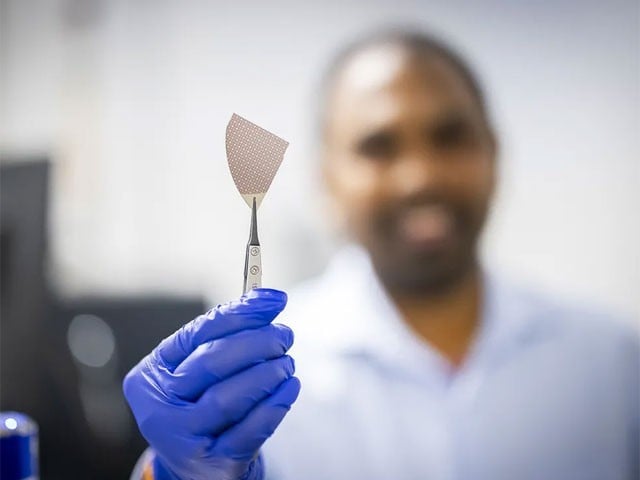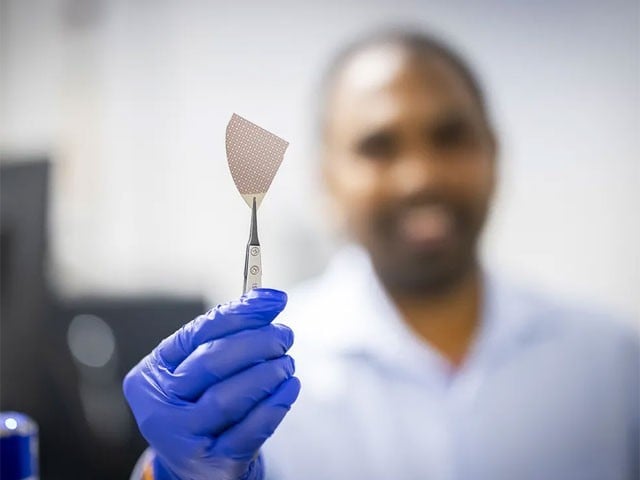
(Photo: University of Pennsylvania)
Pennsylvania: Scientists at the University of Pennsylvania have created a new computing storage device that can operate precisely at temperatures that melt rocks. This new invention will pave the way for future computers to operate in harsh environments on Earth.
Current non-volatile memory (NVM) devices (which include solid-state drives, SSDs) stop working after reaching temperatures of 300 degrees Celsius. But scientists have created a new ferroelectric diode (a semiconductor switching device) that can continue to operate for hours even after reaching temperatures of 600 degrees Celsius.
This means that the sensors and commuting devices in which this diode will be used can be used in extremely harsh environments (such as nuclear plants, deep-field oil and gas exploration or the hottest planets in our solar system). .
The NVM device described in a paper published in the journal Nature Electronics is made of a material called ferroelectric aluminum scandium nitride (AlScN). In the field of advanced materials science, this is the only material that has emerged as a high-performance semiconductor in the last five years.
The AlScN diode-based device has a width of 45 nanometers, meaning the device is 1800 times smaller than a human hair.
(function(d, s, id){
var js, fjs = d.getElementsByTagName(s)[0];
if (d.getElementById(id)) {return;}
js = d.createElement(s); js.id = id;
js.src = “//connect.facebook.net/en_US/sdk.js#xfbml=1&version=v2.3&appId=770767426360150”;
fjs.parentNode.insertBefore(js, fjs);
}(document, ‘script’, ‘facebook-jssdk’));
(function(d, s, id) {
var js, fjs = d.getElementsByTagName(s)[0];
if (d.getElementById(id)) return;
js = d.createElement(s); js.id = id;
js.src = “//connect.facebook.net/en_GB/sdk.js#xfbml=1&version=v2.7”;
fjs.parentNode.insertBefore(js, fjs);
}(document, ‘script’, ‘facebook-jssdk’));



